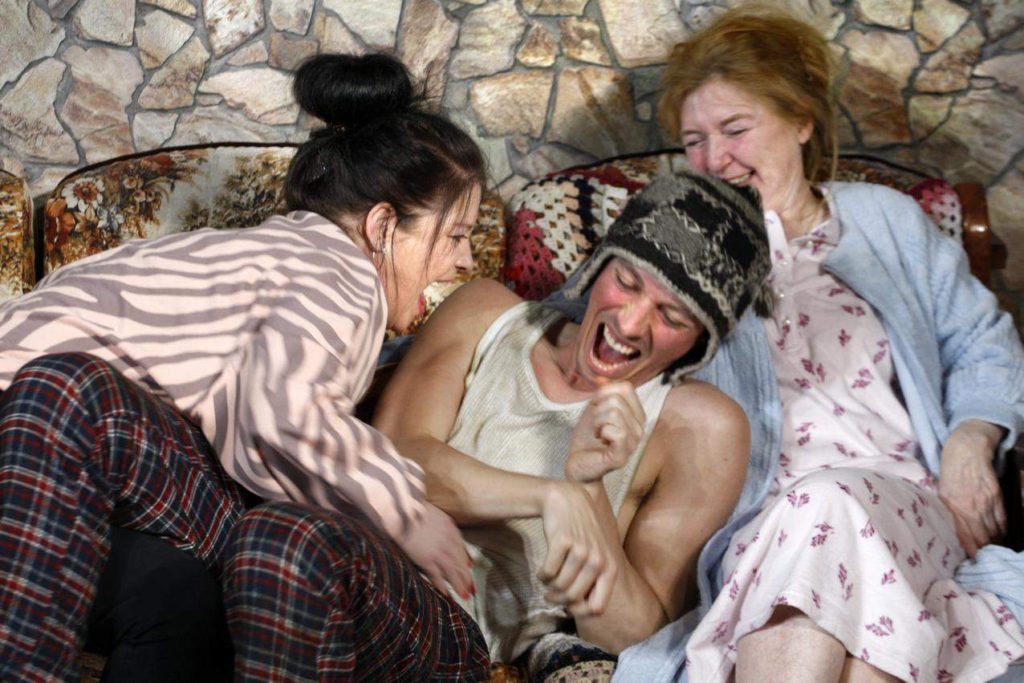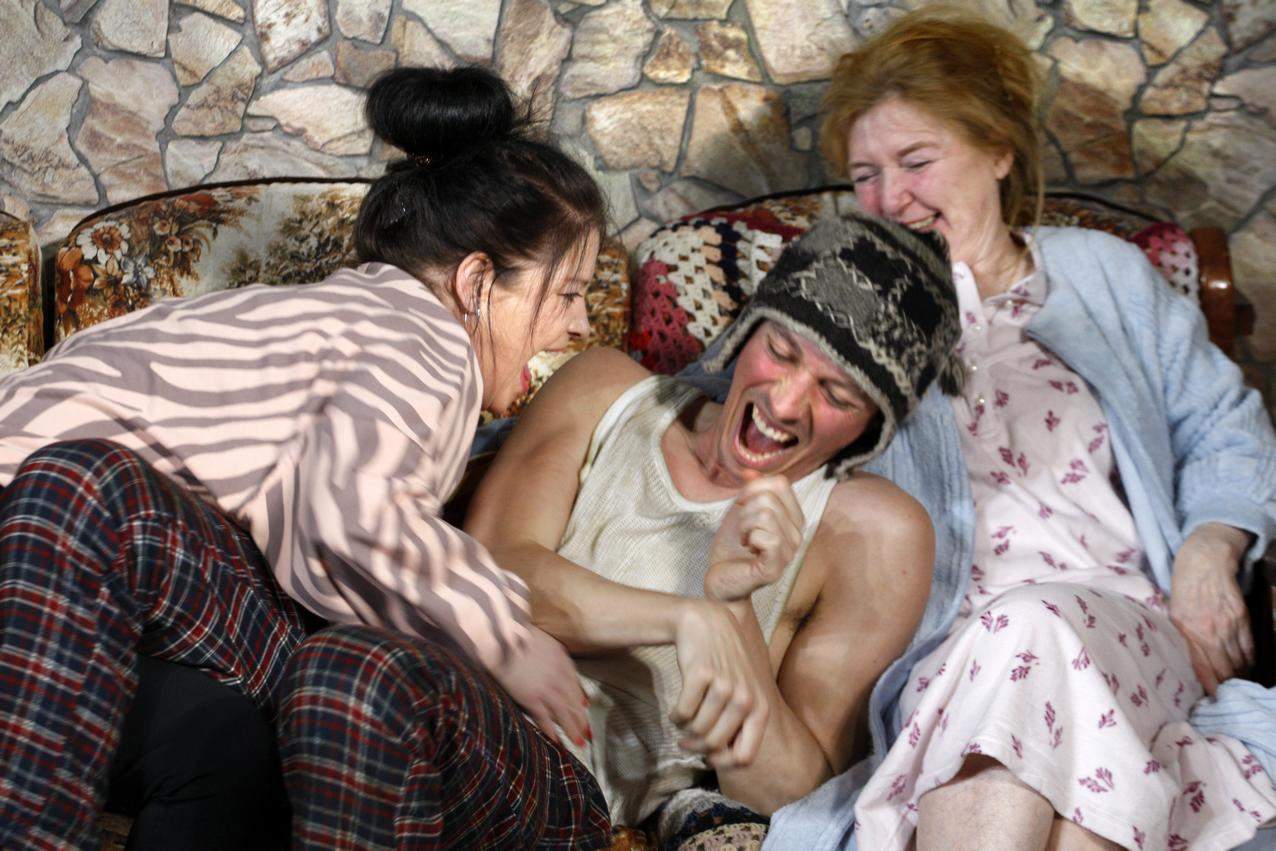
By what alchemy or divination is hard to say, but with an accustomed certainty Laurence Boswell again finds and presents to the patrons of the Ustinov a slice of international drama to enrich our theatrical experience. The play is a picture of a dysfunctional family that appears to be coming apart at the seams. A family in which the centrifugal forces pushing them apart are somehow kept in balance by the invisible bonds of … well I nearly said blood, but the blood of this family is a cocktail of unlikely ingredients. It’s Mrs Brown’s Boys meets Joe Orton (a verdict shared with a fellow reviewer during the interval).
The mother, Mary (Laoisha O’Callaghan) or rather one of the mothers, since all the women in the play are mothers (although one at the remove [if that’s the right word] of a miscarriage) has had her four children by different fathers. She has issues concerning an inability to say ‘no’. Her eldest, Veronica (Natalie Radmall-Quirke) presumably conceived at a tender (under)age, had the good fortune to be brought up by the ‘right’ father and has made a success of her (nearly) normal life. She is the maturity the family otherwise lacks and her later arrival in the house (greeted with the reverence as of a visiting celebrity) comes as something of a surprise. Her status as the only normally balanced member of the family is more like that of a reluctant social worker. Her abiding mission is to protect her own young children from exposure to the poorly socialized mayhem.
The play was written by Claudio Tolachir after an extensive development process with his original cast and premiered in 2005. The setting for this version by Stella Feehily, has been transposed from Buenos Aires to Dublin. Tim Shortall’s wonderful, screechingly bad taste set has a sixties vibe, but with its violently patterned carpet, wallpaper and ceiling could have been doing service at any time up to the turn of the century and beyond.
The movement of the play is towards the sudden death of Granny (Anne Kent) and one of the most grimly comic moments is when the family sing Happy Birthday as she is slumped, apparently dying from what later emerges as possibly medical drug misuse. It culminates with Mary blackmailing Veronica into letting her come and live with her family.
The play is a peep under the dressing that usually covers one of the seeping sores of society and like any good drama it helps us to understand if not quite sympathise. Seen a microcosm of society we find the twin poles of engagement and detachment, a family (albeit dysfunctional) on the one hand and a disparate collection of individuals on the other. The marvel is that they do indeed function… just.
Granny and Gaby (Evana Lynch) who makes a good stab at being normal, speak a kind of Worzelese when speaking about Marko (Rowan Polonski) in his presence. Marko who sits on a spectrum of some kind and is barely manageable spends his time fantasizing about his own embalming and speculating about the father of his grandmother’s (imagined) pregnancy.
Director, Laurence Boswell, never allows the vividly drawn characters to become self-indulgent in their eccentricity. Damian (David Crowley) has anger issues, but these are never allowed to get out of balance with the dramatic moment. Similarly Marko, whose innocent incestuous relationship with his mother that seems astonishingly to be of merely passing concern, is a person with a condition and not merely a stereotype or caricature.
The play is a rare stage picture of social deprivation that sympathises as it cruelly mocks, disturbing and hilarious by turns and acted out with excoriating honesty by the superb cast. ★★★★★ Graham Wyles 4th April 2019


